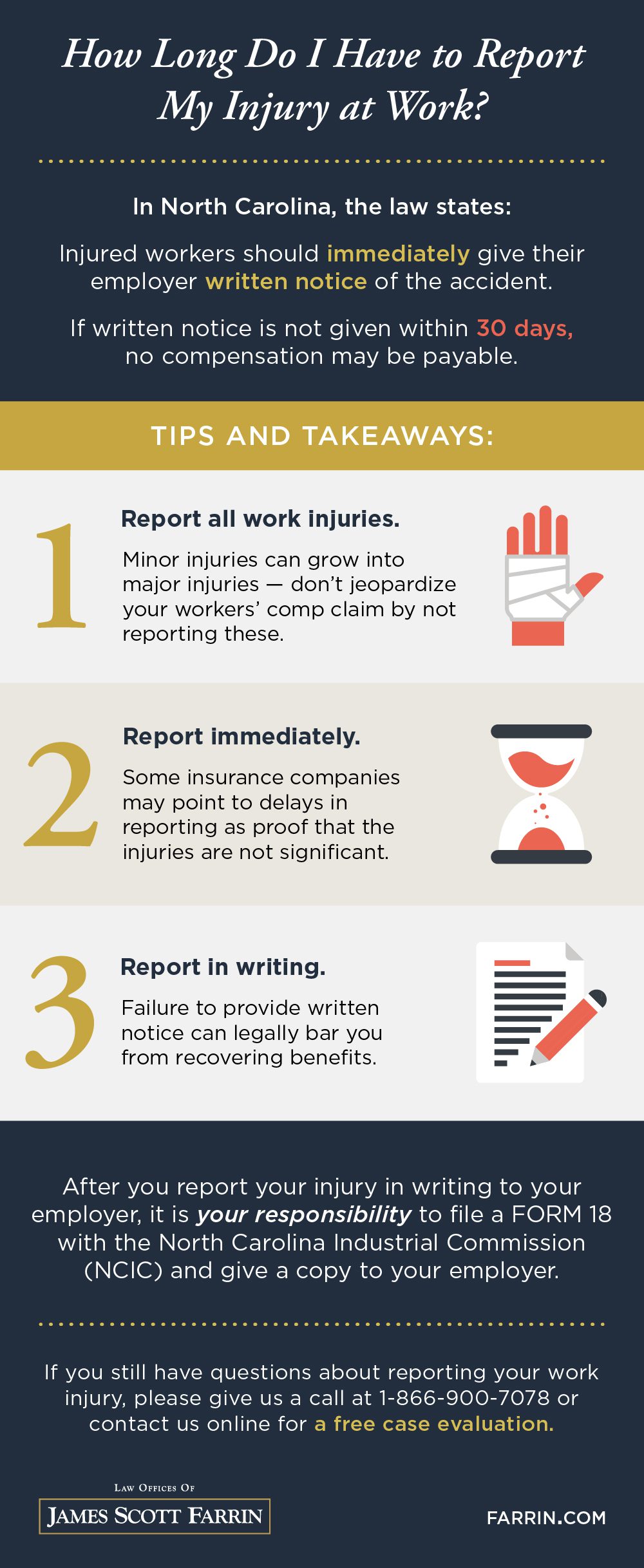In 2023, the National Council on Compensation Insurance reported a 7.1% increase in workers compensation claims. This uptick serves as a stark reminder of the importance of understanding workers compensation settlements. These settlements continue to be a crucial lifeline for injured workers in 2024, providing much-needed financial support and closure.
I’ve seen firsthand how navigating a complex work injury claim can be overwhelming. That’s why I’m here to walk you through the key aspects of workers compensation settlements, from types and influencing factors to the negotiation process and post-settlement considerations. We’ll break down complex concepts, offer practical advice, and equip you with the knowledge to make informed decisions about your claim.
According to data released in 2023 by the National Safety Council, the nationwide average workers’ comp settlement is $41,757 [“Workers’ Compensation Costs” (National Safety Council)]. However, it’s crucial to remember that every case is unique, and settlement amounts can vary widely based on numerous factors.

Source: shutterstock.com
Understanding Workers Compensation Settlements
Workers compensation settlements are agreements between injured employees and employers or their insurance companies. They aim to resolve claims and provide financial support for job-related injuries or illnesses. In 2024, these settlements remain a critical component of the workers compensation system, offering a path to closure and financial stability for injured workers.
Settlements serve multiple purposes in the workers compensation system. For injured workers, they provide a lump sum or structured payments to cover ongoing medical care and lost income. Employers and insurers benefit from settlements by closing out claims and limiting future liability. In 2024, settlements continue to offer a way to resolve disputes and provide certainty for all parties involved.
Several key players are involved in workers compensation settlements. You, the injured worker, are at the center of the process. Your employer and their workers compensation insurance carrier are on the other side of the negotiation table. In many cases, attorneys represent both parties to ensure fair negotiations. In some states, administrative judges or boards may need to approve settlements to protect workers’ interests.
Our approach to client representation at Ultra Law focuses on ensuring that injured workers receive fair and comprehensive settlements. We understand the complexities of workers compensation cases and work tirelessly to protect our clients’ interests throughout the settlement process.
| Key Player | Role in Settlement Process |
|---|---|
| Injured Worker | Central figure, provides information about injury and its impact |
| Employer | Provides workplace information, may participate in negotiations |
| Insurance Carrier | Evaluates claim, proposes and negotiates settlement offers |
| Attorneys | Represent parties, negotiate terms, ensure legal compliance |
| Administrative Judge | Reviews and approves settlements in some jurisdictions |
| Medical Experts | Provide evidence on injury extent and future medical needs |
| Vocational Specialists | Assess impact on earning capacity and future work abilities |
Types of Workers Compensation Settlements
When it comes to workers compensation settlements in 2024, you’ve got two main options: lump-sum settlements and structured settlements. Each type has its own set of pros and cons, and the choice between them can significantly impact your financial future.
Lump-Sum Settlements: One-Time Payouts
A lump-sum settlement is exactly what it sounds like – you receive a single, large payment to cover all future expenses related to your work injury. This option can be attractive if you’re looking for immediate financial relief or have a solid plan for managing a large sum of money. However, it also comes with the responsibility of budgeting for future medical needs and potential complications.
Advantages of Lump-Sum Settlements
Opting for a lump-sum settlement can give you more control over your finances. You’ll have the flexibility to invest the money, pay off debts, or make large purchases that could improve your quality of life. It’s also a clean break from the workers compensation system, which some find appealing. Just remember, once you accept a lump sum, you’re typically closing the door on future claims related to the injury.
Potential Drawbacks to Consider
While a big payout might sound great, it’s not without risks. You’ll need to be disciplined with your spending and investment decisions to ensure the money lasts. There’s also the possibility that your medical condition could worsen over time, leaving you with inadequate funds for future care. It’s crucial to carefully consider your long-term needs before choosing this option.

Source: gettyimages.com
Structured Settlements: Ongoing Support
Structured settlements provide a series of payments over time, often through an annuity. This option can offer more financial stability and predictability, especially if you’re dealing with a long-term or permanent disability. Structured settlements can be tailored to your specific needs, with payments scheduled to coincide with anticipated medical treatments or to provide a steady income stream.
Benefits of Periodic Payments
The main advantage of a structured settlement is the security it provides. You won’t have to worry about running out of money if you live longer than expected or if your medical needs increase. It can also protect you from the temptation to spend a large sum quickly. For those who aren’t comfortable managing large amounts of money, structured settlements offer peace of mind and financial stability.
Limitations of Structured Settlements
While structured settlements offer stability, they also come with less flexibility. Once the payment structure is set, it can be difficult or impossible to change. This lack of liquidity might be problematic if you face unexpected expenses or your financial situation changes dramatically. Additionally, you’ll need to trust that the company managing your annuity will remain solvent over the long term.
Factors Influencing Settlement Amounts
Now, let’s talk money. The amount of your workers compensation settlement isn’t pulled out of thin air. It’s based on several key factors that insurance companies and courts consider. Understanding these elements can help you gauge whether a settlement offer is fair and give you leverage in negotiations.
Severity of Injury: The Foundation of Your Claim
The extent and permanence of your injury play a huge role in determining your settlement amount. More severe injuries that result in permanent disabilities or require ongoing medical care typically lead to higher settlements. This is because the settlement needs to account for a lifetime of medical expenses and lost earning potential.
Temporary vs. Permanent Disabilities
Injuries are often classified as either temporary or permanent, and this classification can significantly affect your settlement. Temporary disabilities are expected to improve over time, while permanent disabilities are likely to affect you for the rest of your life. Permanent disabilities, especially those that prevent you from returning to work, typically result in larger settlements.
| Disability Type | Description | Impact on Settlement |
|---|---|---|
| Temporary Total | Unable to work for a limited time | Short-term wage replacement |
| Temporary Partial | Can work with restrictions | Partial wage replacement |
| Permanent Partial | Permanent impairment, can still work | Lump sum based on impairment rating |
| Permanent Total | Unable to return to any work | Lifetime benefits or large lump sum |
Impact on Daily Life and Work Capacity
It’s not just about the medical diagnosis – how the injury affects your daily life and ability to work is crucial. If you can no longer perform your job or need to switch to a lower-paying position, this loss of earning capacity will be factored into your settlement. Similarly, if the injury impacts your ability to perform daily activities or enjoy hobbies, this too can influence the settlement amount.

Source: adobe.com
Future Medical Expenses: Planning for the Long Haul
Your settlement should encompass not just current medical bills, but also any future care related to your work injury. This may include ongoing treatments, medications, potential surgeries, and even home modifications if necessary. Accurately estimating these future costs is vital to ensure you’re not left bearing the financial burden years down the road.
Ongoing Treatment and Rehabilitation
For many work injuries, recovery is an ongoing process. Your settlement should account for continued physical therapy, occupational therapy, or other forms of rehabilitation. It’s crucial to have a clear understanding of your long-term treatment plan and ensure that the settlement covers these expenses.
Potential Complications and Future Surgeries
Work injuries can sometimes lead to unforeseen complications or necessitate additional surgeries down the line. A comprehensive settlement will take these potential future needs into account. This might involve setting aside funds for possible procedures or creating a mechanism to address unexpected medical issues related to the original injury.
Lost Wages and Earning Capacity: Protecting Your Financial Future
Your settlement should compensate you for wages lost due to your injury, including time off for recovery and medical appointments. However, it extends beyond that – if your injury affects your ability to earn at the same level in the future, this diminished earning capacity should be factored into your settlement.
Calculating Past and Future Lost Wages
Determining past lost wages is relatively straightforward – it’s based on the time you’ve missed from work due to your injury. Calculating future lost wages is more complex. It involves estimating how much you would have earned over your working life if the injury hadn’t occurred, compared to what you’re likely to earn now. This calculation takes into account factors like your age, education, skills, and the local job market.
Impact on Career Progression and Benefits
Your injury might not just affect your current earnings, but also your career trajectory. If you can no longer pursue promotions or advance in your field, this lost potential should be considered in your settlement. Additionally, if your injury results in the loss of employment benefits like health insurance or retirement contributions, these too should be factored into the settlement calculations.
Navigating the Settlement Process
Now that we’ve covered the fundamentals, let’s delve into the intricacies of securing your settlement. While the process can appear daunting, breaking it down into manageable steps makes it more approachable. Keep in mind that each case is unique, and the exact process may vary depending on your location and the specifics of your claim.
At Ultra Law, we handle various types of accident cases, including those resulting in workers’ compensation claims. Our experience in this area allows us to guide clients through the settlement process with confidence and expertise.
Initial Claim Filing: Getting the Ball Rolling
Everything begins with filing your workers compensation claim. This serves as your official notification to your employer and their insurance company that you’ve sustained a job-related injury and are seeking benefits. It’s vital to file this claim promptly and accurately to safeguard your rights and initiate the compensation process.
Reporting Your Injury: Timing is Everything
The moment you sustain an injury at work, time becomes a critical factor. Most states impose strict deadlines for reporting work-related injuries, often ranging from a few days to a few weeks. Don’t procrastinate! Inform your supervisor or HR department as soon as possible. Even if the injury initially seems minor, it’s prudent to have it on record in case complications arise later.

Source: adobe.com
Gathering Documentation: Building Your Case
Documentation serves as your ally in workers compensation claims. Maintain meticulous records of everything related to your injury and treatment. This encompasses medical records, bills, prescriptions, and any correspondence with your employer or their insurance company. Don’t overlook documenting how the injury impacts your daily life and work abilities – this information can be crucial for your claim.
Negotiation Strategies: Advocating for Your Interests
Once you’ve filed your claim and compiled your documentation, it’s time to engage in negotiations. This process involves back-and-forth discussions with the insurance company to reach a fair settlement. It’s often advantageous to have a clear understanding of your “bottom line” – the minimum amount you’re willing to accept – before entering negotiations.
Calculating Settlement Value: Know Your Worth
Before initiating negotiations, it’s essential to have a solid grasp of your claim’s value. This involves tallying up your medical expenses, lost wages, and estimating future costs related to your injury. Don’t overlook less tangible aspects like pain and suffering or loss of enjoyment of life, if applicable in your jurisdiction.
Leveraging Professional Assistance: Strength in Numbers
While it’s feasible to navigate the settlement process independently, many injured workers find it beneficial to seek professional help. An experienced workers’ compensation attorney can offer valuable insights, handle negotiations on your behalf, and ensure you’re not leaving money on the table. Some also opt to work with settlement advisors who specialize in structuring payments for long-term financial security.
Legal Considerations and Protections
The workers’ compensation system is governed by a complex web of laws and regulations. These rules are designed to protect both workers and employers, but they can also make the process challenging to navigate. Understanding the legal landscape can help you make informed decisions about your claim and settlement.
State-Specific Regulations: Navigating Local Laws
Workers’ compensation laws are primarily established at the state level, resulting in significant variations depending on where you live and work. These state-specific regulations encompass everything from the types of injuries covered to the maximum benefit amounts you can receive. Familiarizing yourself with your state’s specific laws is crucial to ensure you’re receiving all the benefits you’re entitled to.
Settlement Approval Requirements: Ensuring Fair Understood. I’ll continue from where I left off, covering the remaining content with appropriate HTML tags: ness
In numerous states, workers’ compensation settlements must receive approval from a judge or administrative body. This requirement aims to safeguard injured workers from accepting unfair settlements. The approval process typically involves reviewing the settlement terms to ensure they adequately compensate the worker and comply with state laws.
Time Limitations: Beat the Clock
Workers’ compensation claims are subject to various time limits, known as statutes of limitations. These deadlines apply to reporting injuries, filing claims, and sometimes even to how long you can receive benefits. Missing these deadlines can seriously jeopardize your right to compensation, so it’s essential to be aware of and adhere to all relevant time limits.
Tax Implications: Understanding the Financial Impact
The tax treatment of your workers’ compensation settlement can significantly affect its overall value. Generally, workers’ compensation benefits are not taxable at the federal level. However, exceptions exist, and state tax laws can vary. Understanding the tax implications of your settlement is crucial for accurate financial planning.
Tax-Free Components: Maximizing Your Take-Home
The majority of your workers’ compensation settlement is likely to be tax-free. This typically includes compensation for medical expenses and lost wages related to your work injury. Understanding which portions of your settlement are tax-free can help you negotiate more effectively and plan for your financial future.
Taxable Portions: Watch Out for Hidden Costs
While most of your settlement will likely be tax-free, certain components might be taxable. For example, if part of your settlement is allocated to punitive damages or interest on past-due benefits, these portions may be subject to taxation. It’s important to clearly understand which parts of your settlement might be taxable to avoid surprises come tax season.
Post-Settlement Considerations
Receiving your workers’ compensation settlement isn’t the end of the road – it’s the beginning of a new financial chapter. How you manage your settlement funds and navigate your ongoing medical needs can significantly impact your long-term well-being.
Managing Settlement Funds: Securing Your Financial Future
Whether you receive a lump sum or structured payments, managing your settlement funds wisely is crucial. This money needs to cover your ongoing expenses related to your injury, potentially for many years to come. It’s often beneficial to consult with financial professionals who can help you create a sustainable long-term plan.
At Ultra Law, we’re committed to supporting our clients beyond the settlement process. We can provide guidance on managing settlement funds and connecting you with trusted financial advisors to ensure your long-term financial stability.
Financial Planning: Stretching Your Settlement
Effective financial planning can help ensure your settlement funds last as long as you need them. This might involve creating a budget, setting up investment accounts, or exploring options like annuities. The goal is to balance your current needs with long-term financial security.
Medicare Set-Aside Arrangements: Protecting Your Benefits
If your settlement includes funds for future medical expenses and you’re eligible for Medicare, you might need to set up a Medicare Set-Aside Arrangement (MSA). This special account ensures that settlement funds are used to pay for injury-related medical expenses before Medicare kicks in. Properly structuring an MSA can help protect your Medicare benefits in the long run.
Ongoing Medical Care: Maintaining Your Health
Your need for medical care related to your work injury doesn’t end when you receive your settlement. It’s important to understand how your settlement impacts your access to ongoing treatment. Some settlements include provisions for future medical care, while others might require you to cover these expenses from your lump sum payment.
Continuing Treatment Options: Navigating Your Care
After your settlement, you may have more flexibility in choosing your healthcare providers. However, it’s important to understand any limitations on covered treatments. Some settlements specify which types of treatments are covered, or may require pre-approval for certain procedures. Staying informed about your options can help you make the best decisions for your ongoing care.
Future Medical Expenses: Planning for the Unknown
While your settlement should account for anticipated future medical needs, it’s impossible to predict everything. It’s prudent to set aside a portion of your settlement for unexpected medical expenses related to your injury. This might include funds for new treatments that become available or for complications that arise down the road.
Learnings Recap
We’ve covered extensive ground in this guide to workers’ compensation settlements in 2024. From understanding the types of settlements available to navigating the legal landscape and planning for your post-settlement future, there’s a wealth of information to absorb. Here are some key points to remember as you move forward with your workers’ compensation claim:
- Know your options: Understand the differences between lump-sum and structured settlements, and consider which might be best for your situation.
- Document everything: Keep detailed records of your injury, medical treatment, and how it affects your daily life and work capacity.
- Understand the factors that influence your settlement: These include the severity of your injury, future medical expenses, and lost wages.
- Be aware of legal deadlines: Don’t miss important time limits for reporting injuries and filing claims.
- Consider seeking professional help: An experienced attorney or settlement advisor can provide valuable guidance.
- Plan for the long term: Think about how you’ll manage your settlement funds and cover ongoing medical needs.
- Stay informed about tax implications: Understand which portions of your settlement might be taxable.
- Keep future medical needs in mind: Consider how your settlement will cover ongoing and potential future medical expenses.
- Be prepared to negotiate: Know your claim’s worth and be ready to advocate for fair compensation.
- Think beyond the settlement: Consider how you’ll manage your funds and healthcare needs post-settlement.
Remember, every workers’ compensation case is unique. While this guide provides a comprehensive overview, it’s always best to consult with legal and financial professionals who can offer personalized advice based on your specific situation. By staying informed and proactive, you can navigate the workers’ compensation settlement process with confidence and secure the support you need for your recovery and future well-being.




